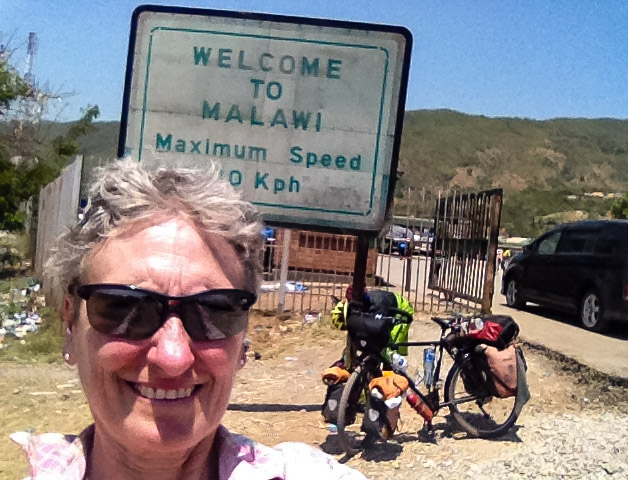
She was wearing a freshly ironed orange blouse and a matching navy blue wrapper with orange fishes swimming in it. Sitting on a bike-taxi riding in the hard shoulder just ahead of the white woman on a bike, her hair was an elaborate maze of small plats gathering at the nape of her neck to form an elegant bun. The woman was riding side saddle, her back straight, she was looking with curiosity at this scruffily dressed white woman huffing and puffing as she pedalled up hill on her heavily loaded bicycle. After a while, the woman looked straight into the white woman’s eyes and rubbed her thumb against her middle and index fingers in that universal sign for money and in perfect English said “Give me your money”.
“Give me your money”, “Give me money”, “Give me your bike”, “Give me one of your bags”, “Give me a bottle”, “Give me water”, “Give me food”. I heard those demands hundreds of times a day as I threaded my way down Malawi. They came mainly, but not exclusively, from children. They were never aggressive but by gosh were they persistent!
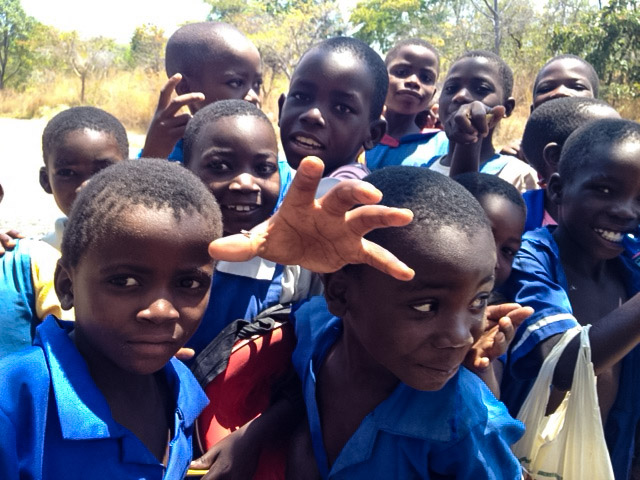
Malawi is one of the poorest countries in the world, third only after South Sudan and Burundi and the only one which has not had a war. A country where one in ten of the population live with HIV/AIDS, where nearly 83% of the employed population live on less than the equivalent of 3.10 USD per day and where in 2015 it was estimated that nearly 60% of the population didn’t have access to proper sanitation facilities. I didn’t know any of these facts before I came into the country but as soon as I crossed the border I could sense there was a difference between Malawi and the other countries I had been to in Africa.
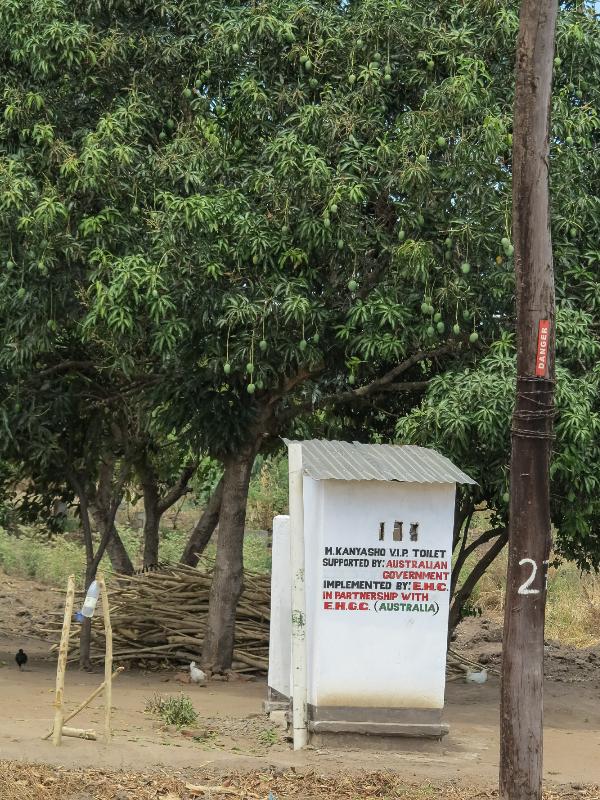
There was the obvious physical difference, I was leaving behind the Tanzanian mountains with their beautiful tea plantations and cool, clean air to encounter a dry, hot, flat and dusty valley, but it wasn’t that, there was something about the place, about the villages with their grass roofed huts and the big cassava plantations that was rattling me.
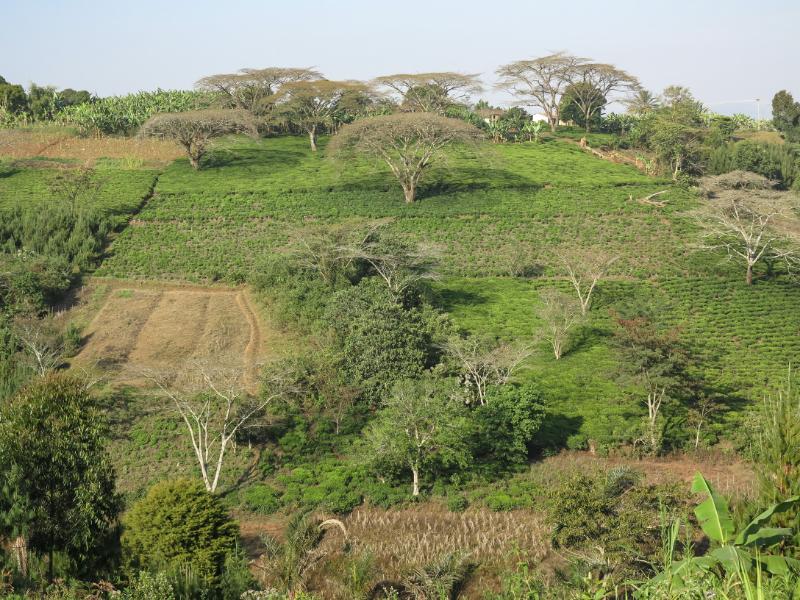
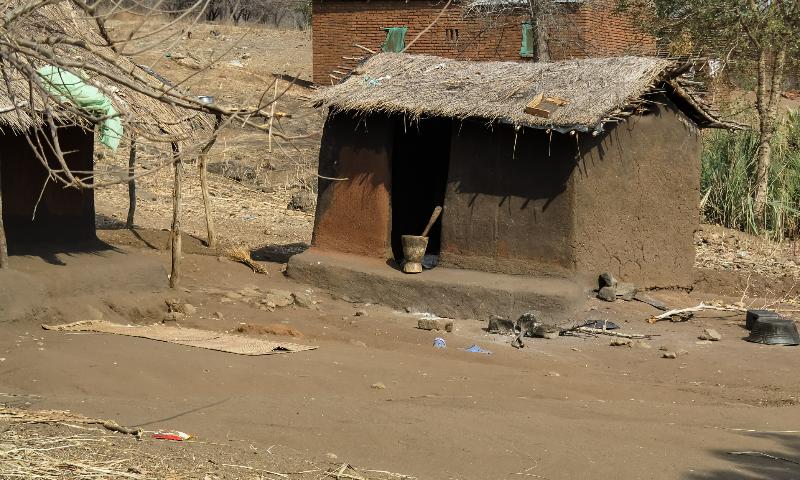
Aware of this feeling I made my way to Lake Malawi. I had reached the southernmost lake of the East Rift Valley which I had first joined in Kenya more than 3,200 km away. Lake Malawi is the third largest and the second deepest Lake in Africa and I was intending to have a holiday by its shores having heard from other travellers about its nice campsites, gorgeous white sand beaches and stunning sunrises.
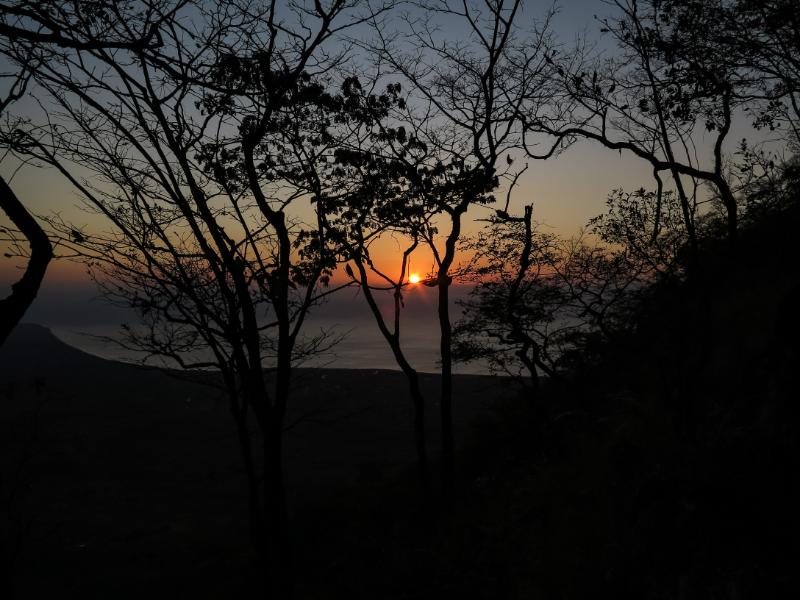
It was in one of those campsites that I met Willie. Willie had opened a campsite popular with overlanding cyclists a few years earlier. A white South African man in his 70s sporting a big beard, Willie had strong opinions which I got to hear when at 6 o’clock on a Sunday morning I sat with him to have coffee. I heard how he doesn’t believe in the theory of evolution, how the world was created in seven days just as the Bible tell us, how all the signs are here that the second coming in near. I heard about the corruption, ignorance, superstition and laziness prevalent in Malawi. On seeing the burning of the grass in the local mountains, I heard the red anger in his voice when he asked his employees “why do you burn the mountains? Why? Why? For six hours I listened to his theories being both fascinated and uncomfortable.
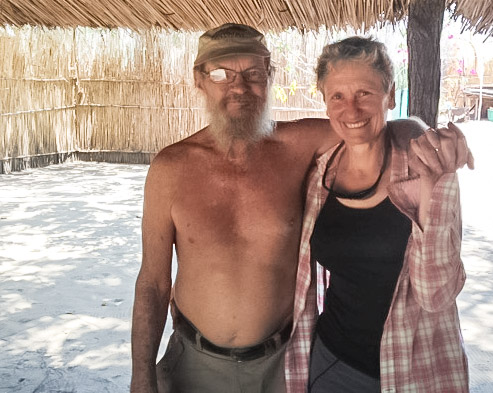
” If you get a chance go to Livingstonia” told me Peter and Colleen, two cyclists my age from whom I have received a lot of help and advice. I said goodbye to Willie, jumped on a pick up truck full to the brim of things and people and bumped along an extremely steep ‘road’ towards the village. The pick up truck was slipping on the loose gravel, it had to do three point turns in some of the hairpin bends and at times, its wheels were too close to the precipice for my comfort. I breathed a sigh of relief when finally I arrived at my destination.
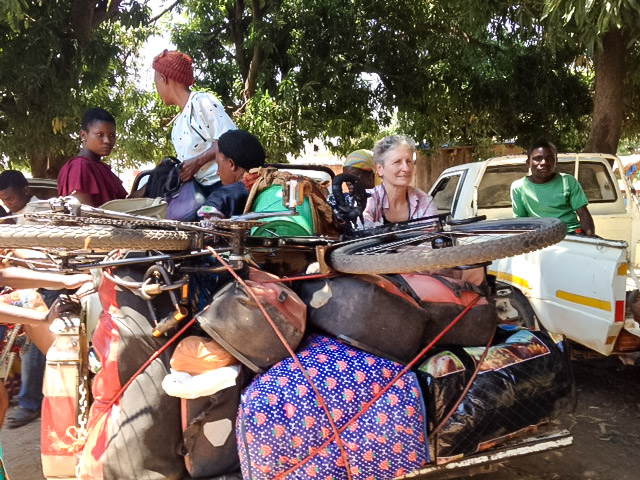
Livingstonia, where the missionaries of the Free Church of Scotland moved to escaping from the malaria mosquitos prevalent by the lake, looked as if it was suspended in the past with its small red brick cottages, red brick church and hospital. I was expecting to see the missionaries in their 1880s clothes each time I turned a corner but instead I was greeted by loudspeakers blearing out kwa ngwaru, a song I’ve been hearing everywhere since I entered Tanzania. The music was loud but it couldn’t detract from the views of the lake below and the terracing in the slopes around the village.
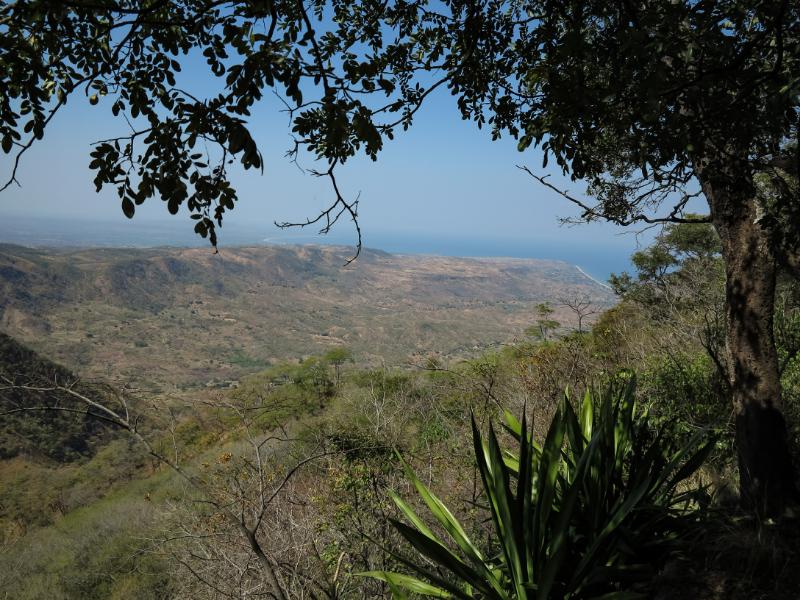
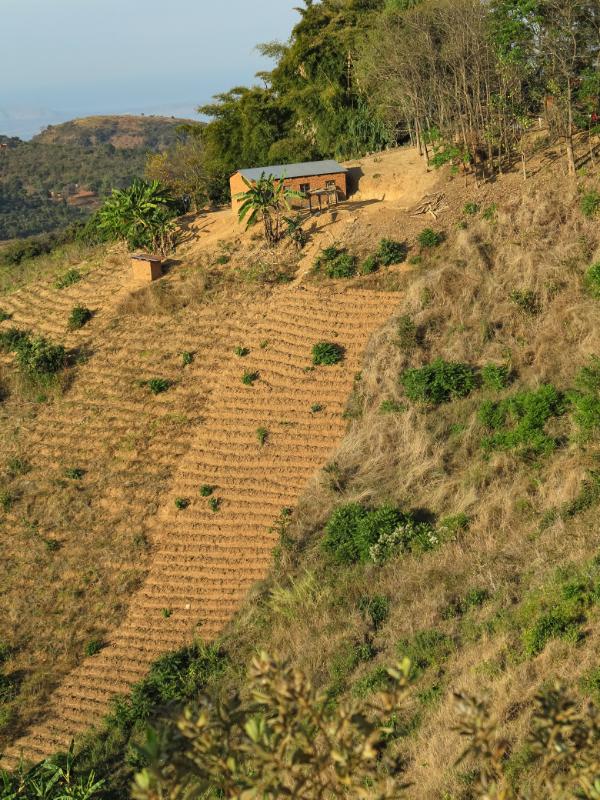
Something other than the altruism of the missionaries was moving me now – the quest for a supermarket! Mzuzu, Malawi’s third largest town held the promise of one. I’d been hearing about its existence from my first day in Malawi and I couldn’t wait to get there. Other than cassava, the only ingredients I found on the road were tomatoes and onions and nice as they were I was getting bored of pasta with tomato sauce, rice with tomato sauce, bread with tomato sauce…75 km of dirt road would be no obstacle to reach my objective!!
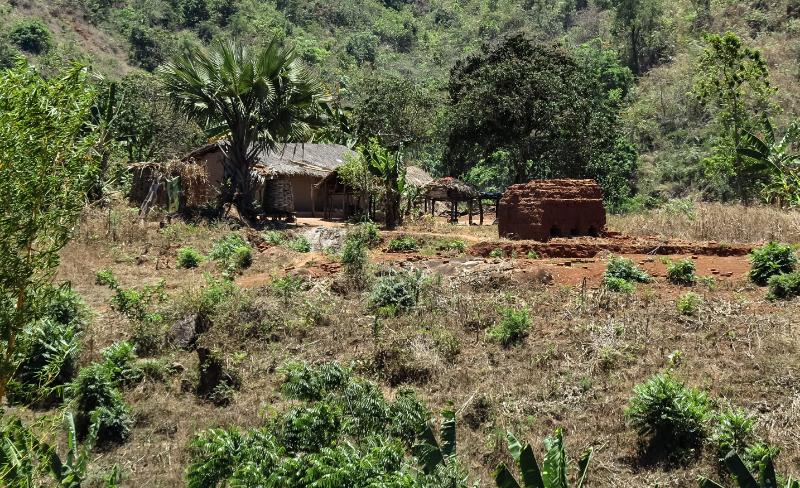
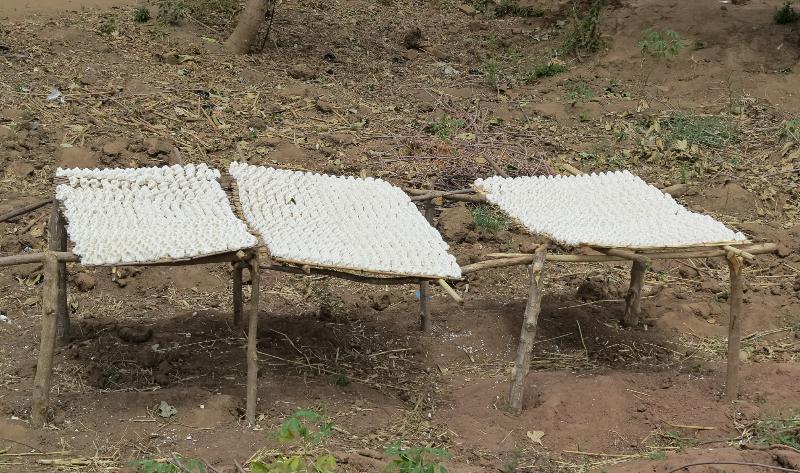
I get very excited at the thought of a supermarket. The idea of walking down its aisles full of goods, fridges with yogourth and cheese. A place where one can buy breakfast cereals and were there is refrigerated meat that hasn’t been hanging in the sun covered with flies. Each time I find one I religiously walk down each single aisle even those that have items that I don’t want or need.
And finally, here it was, its interior full of goods beckoning, its cool air reaching me through its open doors, the glow of its fluorescent lights illuminating the “SPECIAL OFFER” signs.
Dirty and sweaty, I hovered at the door anxiously looking for a safe place to leave my loaded bike to be able to dive in and there was none. I must have been a strange sight as shoppers going in and out started giving me funny looks. Finally I had to admit defeat, turn my back on the door and direct my wheels to the campsite.
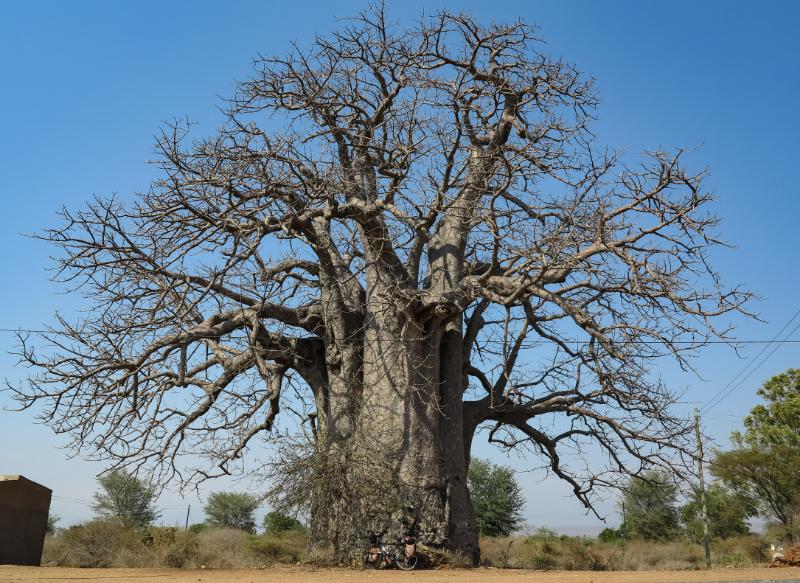
Like all the other Malawi campsites I stayed in, the one in Mzuzu was run by foreigners – white South Africans, Germans, Americans. Designed with mzungu clientele in mind they all were clean and comfortable, hot water, drinking water on tap, cold beers, varied menus, beautiful lawns and in all of them the prices, compared to local earnings were astronomical.
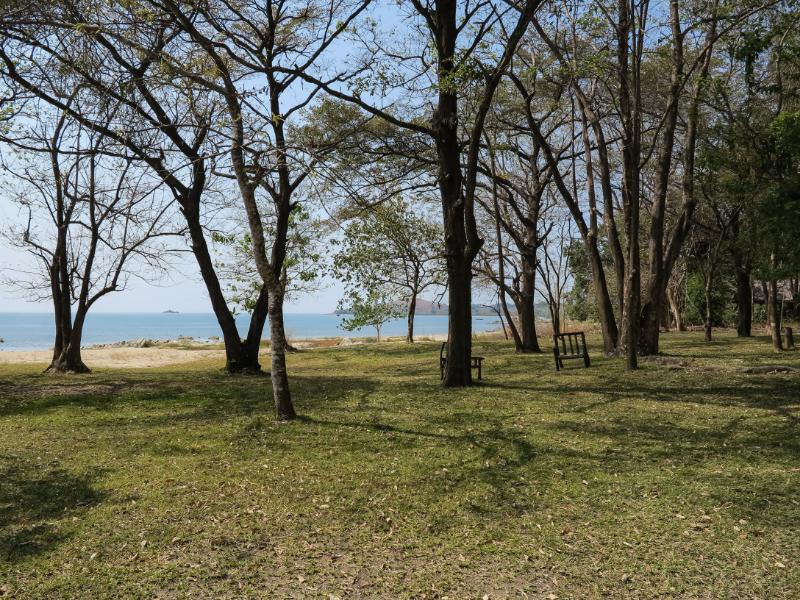
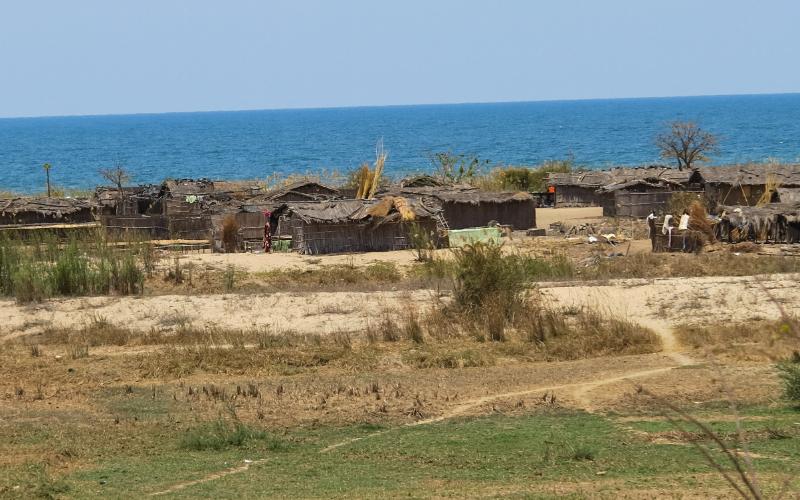
In Malawi inequality stared at me on the face more than anywhere else in this trip and that’s why it didn’t come as a surprise when on my last day in the country, a little girl who had run from her hut to the road with huge strides said: “Give me MY money” as I passed by her.
hi Blanca,
We are friends on Facebook.
I have been in Africa, Algeria, Liberia, and South Africa.
it is very different from the west. The law of the jungle is the way most Africans think. you have a Bike, you meet a man with a gun. Then the Gun man has a Bike and a gun.
Keep safe Blanca.
Safe onward travels.
Blanca I think it must be very hard to travel seeing people with so little. Makes me realise I shouldn’t have so much when many have nothing. Thank you for this – it brings home the injustice of our world more than any political treatise. Hope you’re well and coping with it. Much love.
thank you for showing us just how well off we really are. Have a great time with Karen
Malawi has definitely had a troubled history. I first became aware of some of the issues because of a musician named Tony Bird who I saw and listened to in the 70’s. He is white, born in the country (then known as Nyasaland) but his songs were anti-colonial and described the life of indigenous Malawians.
As usual, a very thoughtful post, much appreciated. Stay well, I look forward to the next instalment.
Xoxo
I too remember the music of Tony Bird, I always wondered what his country was like.
What contrasts you describe so well Blanca,
The scenery and terrain, the people, attitudes and the relative wealth and poverty. I’d find it hard to get my head around it too.
The transport to Livingstonia does look a little crowded but hey, anyone who has battle the Victoria Line in rush hour would be jealous!
Please continue to enthrall us with your travels and take care.
Maureen x
PS Give Karen my regards, it was good to meet her last year in Kirkby Lonsdale.
After this journey, I imagine you might be the kind of woman who would understand Quondam”Travels in a once World
In book two it does continue thru Malawi…but that is book two!
Blessings
John devoy
Dear Bianca,
Thank you so much for the “postcards” that describe your journey in a desperate place. There you met Teresa, the Peace Corps doctor, and Bonnie, the nurse midwife, and they, in turn, sent me your blog site for which I am grateful. Living in Kenya life is so easy by comparison to the Malawi you experience. We are now getting rains, by the way! I remain full of admiration and looking forward to your continued journey and posts. May it soon provide a cool supermarket with a safe bike landing, be safe for you and happier.
Channa
I shall now think of you every time i go to my HUGE local sainsburys.
Meant to add… stay safe. Treat yourself to a nice bar of chocolate on me next time you see one. L xxxx
Meant to add… stay safe. Treat yourself to a nice bar of chocolate on me next time you see one. L xxxx
Insightful.
Great and thought-provoking post – thank you. I was wondering how it makes you (and me) think about the world? On the one hand it’s stunningly beautiful. On the other hand there is such injustice. Been a good way to start my morning
It must be heartbreaking to see all this poverty and to hear all these requests for money, water etc You describe this all so well! I really feel that I’m there with you. Thank you sooo much for your reports and enjoy your time with your friend!
So lovely to read your account of Malawi. I am missing it since I’ve been back home in Australia and struggling with the inequality between my life and that of my friends who run the day care centre i worked in!! Reading your post took me right back to the streets of Mzuzu, shoprite and Joys place.. and of course all the gorgeous Malawian children and people I fell in love with. Stay safe and keep that huge smile on your face Blanca!!
Love Nadine x
Sounds like a real eye opener. I hope you are finding it worthwhile in spite of coming face to face with the inequality. How do you deal with these demands? It is not as though you are travelling in great luxury, yet even so it must be quite hard for you. As ever it is not just the physical challenges you face by the mental ones too.
I remember when Banda was running Malawi as a kind of private enterprise – president for life (and he lived until he was 99- somehow being a tyrant is good for your health – see Mugabe!) but forced from office at 97. The totalitarianism has obviously left a negative legacy. They would make men cut their hair short on entering the country, though that was pretty tame, it was indicative of the general control of thought and mind.
Enjoy Vic Falls – quite a sight. Then Great Zimbabwe (I assume you will be in Zimbabwe after Zambia?).
Sembra tutto meraviglioso e splendido…ma chiedo la possibilità che si possa tradurre e leggere un ITALIANO….GRAZIE!!!
I continue to marvel at your cycling adventure!
I ride my bike in the Bahamas just 6 miles to the closest “grocery store”/so-called…and there are no bananas, few fresh vegetables. Sometime such basics (to some), luxuries (to others) arrive on “boat day” once a week.
Aaah, but the beaches are gorgeous!
And, sadly, injustice and inequality are worldwide.
Bueno suerte!
Far too long since I last posted to you – and just today Suze and I were telling friends of your fantastic travels. It’s Sienna’s birthday, surrounded by far too many presents and an abundance of everything , topped off with toasting marshmallows, a bonfire and fireworks (Tesco’s best!) – and then I read of all that you are surrounded by – so humbling. Altho we are constantly reminded on television of poverty and famine in far off places, it digs just that little bit deeper, hearing of it from you, our dear friend. thank you.
Christmas draws closer with thoughts of our great time together in Koh Samui.
Malawi was the first African country I worked in in the 90s and I loved it at the same time as it broke my heart. There were 30%+ rates of antenatal HIV in some areas – while in that post-Banda era specific safer sex campaigns were not allowed. The breathtaking beauty of the landscape and the brutal deforestation. The lovely people struggling to survive. The utter darkness in the countryside at night. The lions waiting by the car when it was stuck in a pothole. Hippos exhaling outside the tent. The glory of the country’s first supermarket – with aisle after aisle of identical boxes of salt and tins of oil.
Inequality for sure, and then some. While the ‘developed’ world works as hard as it can to squander resources and turn back progress. Look out for more love and heartbreak on your travels. Stay safe!
Impresionantes los relatos. Te seguimos toda la familia. Cuidate mucho !!!
Un besazo
Enjoyed reading your blog about Malawi. The natural beauty must be enthralling and the appalling poverty such a contrast. Stay safe, my dear friend.
Love your blog but feel Woolwich is going the same way. Keep safe look after yourself
Global Justice Now helps explain the dire poverty in Malawi. Aside from its dire colonial legacies and corrupt government, they cite ideologically driven policies imposed by the International Monetary Fund (IMF), World Bank and donors, including the UK, which have mandated policies to remove subsidies that support livelihoods and food for the poor, while requiring privatisation and/or cost recovery of key functions within the public sector.
Stay safe, my lovely friend
I soooooooo wanted to hear that you took the bike into the supermarket with you!!!!!!
This reeeally took me back – thanks for great story-telling about Malawi! 🙂